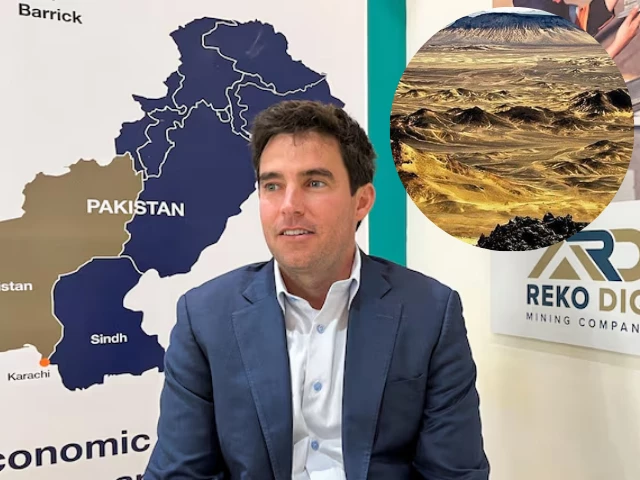Barrick Gold targets $2b financing for Reko Diq copper-gold project
Reko Diq is expected to generate $90 billion in operating cash flow including $70 billion in free cash flow.

Barrick Gold is looking to secure upwards of $2 billion in financing for its Reko Diq copper and gold project in Pakistan, with term sheets expected to be finalised by early Q3 2025, according to the project's director.
The funding will support the development of Reko Diq, one of the largest undeveloped copper-gold deposits globally, which is expected to generate $70 billion in free cash flow and $90 billion in operating cash flow.
Reko Diq is a joint venture between Barrick Gold, the governments of Pakistan and Balochistan.
The project’s phase one financing, estimated to start production in 2028, is currently being negotiated with multiple international lenders.
Tim Cribb, Barrick Gold’s Project Director for Reko Diq, revealed in an interview at the Pakistan Minerals Investment Forum 2025 that the mine is seeking $650 million in financing from the International Finance Corporation (IFC) and the International Development Association (IDA).
Additionally, the project is in talks with the US Export-Import Bank for financing of $500 million to $1 billion, as well as securing $500 million from various development finance institutions, including the Asian Development Bank, Export Development Canada, and the Japan Bank for International Cooperation.
"We expect to close the term sheet in late Q2 or early Q3," said Cribb.
The Reko Diq project has recently seen an upgrade in its scope. The phase one throughput will increase to 45 million tonnes per annum (mtpa) from 40 mtpa, and the phase two throughput will rise to 90 mtpa from 80 mtpa.
Consequently, the mine's life has been adjusted from 42 years to 37 years, though Barrick believes additional unaccounted minerals may extend the life to up to 80 years. The cost of phase one has also risen to $5.6 billion from $4 billion.
Cribb also mentioned that railway financing talks are progressing, with infrastructure costs estimated between $500 million and $800 million, with the initial cost pegged at $350 million.
The financing deal is expected to be supported by offtake agreements, with potential clients from Asia, including Japan and Korea, as well as European countries like Sweden and Germany, looking to secure copper supplies for their industries.






















COMMENTS
Comments are moderated and generally will be posted if they are on-topic and not abusive.
For more information, please see our Comments FAQ